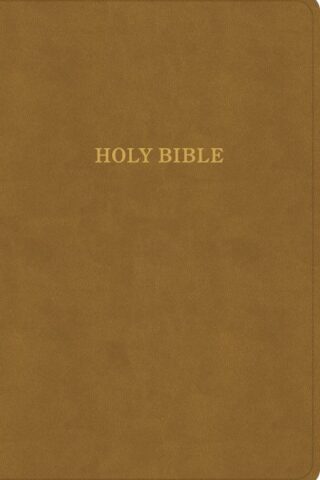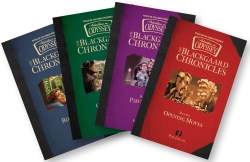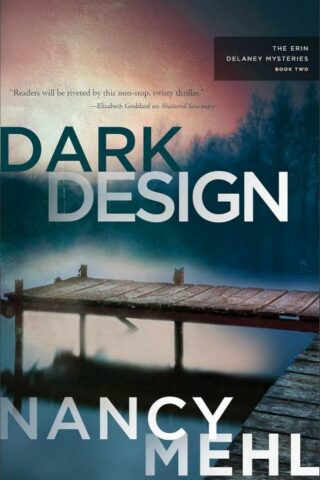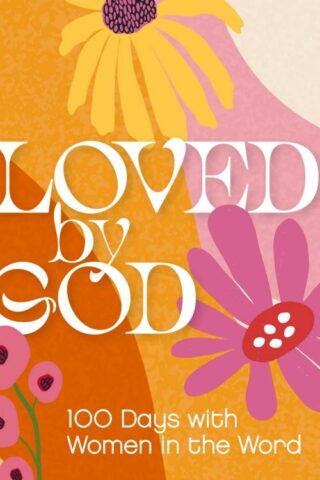Category
- Food and Drinks
- Uncategorized
- Apparel
- Audio Books
- Bibles
- Today's New International Version (TNIV)
- (Authorized) King James Version (KJV)
- Christian Standand Bible (CSB)
- English Standard Version (ESV)
- Devotional Bibles
- Personal Size Bibles
- Reference Bibles
- Wide Margin Bibles
- Women's Bibles
- Children's Bibles
- Gift and Award Bibles
- Large and Giant Print Bibles
- New Testament Only Bibles
- One Year Bibles
- Pew Bibles
- Scripture Portions
- Specialty and Misc. Bibles
- Study Bibles
- Text Only Bibles
- Youth/Teen Bibles
- Legacy Standard Bible
- New American Standard Bible (NASB)
- New English Bible (NEB)
- New International Readers Version (NIrV)
- New International Version (NIV)
- Gift and Award Bibles
- Personal Size Bibles
- Children's Bibles
- Compact Bibles
- Devotional Bibles
- Large and Giant Print Bibles
- New Testament Only Bibles
- One Year Bibles
- Reference Bibles
- Scripture Portions
- Specialty and Misc. Bibles
- Study Bibles
- Text Only Bibles
- Thinline and Slimline Bibles
- Wide Margin Bibles
- Women's Bibles
- Youth/Teen Bibles
- New King James Version (NKJV)
- New Living Translation (NLT)
- Children's Bibles
- Compact Bibles
- Devotional Bibles
- Family Bibles
- Gift and Award Bibles
- Large and Giant Print Bibles
- Men's Bibles
- New Testament Only Bibles
- One Year Bibles
- Personal Size Bibles
- Reference Bibles
- Scripture Portions
- Specialty and Misc. Bibles
- Study Bibles
- Text Only Bibles
- Thinline and Slimline Bibles
- Wide Margin Bibles
- Women's Bibles
- Youth/Teen Bibles
- Other
- Parallel Bibles
- Passion
- Simplified King James Version (SKJV)
- The Living Bible (TLB)
- The Message (MSG)
- Bibles (Other Language)
- Bibles (Spanish)
- Book and Bible Accessories
- Books
- Books With Music
- Catholic
- Dictionaries
- Family Entertainment
- Valentine's Day
- Activity Books
- Adult Ministries
- Advent
- Adventure Fiction
- Aging
- Allegorical Fiction
- Angelology
- Anthropology
- Apologetics
- Archaeology
- Atlases Charts and Maps
- Baptism
- Bible Dictionaries
- Bible Language Tools
- Bible Personage
- Bible Story Books
- Bible Studies
- Biblical Fiction
- Biblical History
- Biblical Studies
- Bilingual Books
- Biographies
- Books With Audio
- Business
- Calendars and Datebooks
- Careers
- Caregivers
- Character Development
- Charismatic Interests
- Children
- Children's Fiction
- Children's Ministries
- Christian Education
- Christian Living
- Christmas
- Christology (Theology of Jesus Christ the Son)
- Church Administration
- Church History
- Church Life
- Classic Books
- Coloring Books
- Commentaries
- Communion
- Comparative Religions
- Concordances
- Contemporary Fiction
- Cookbooks
- Counseling
- Cults and The Occult
- Dating and Sex
- Death and Dying
- Denominational Concerns
- Devotional
- Discipleship
- Divorce
- Easter
- Ecclesiology
- Educational
- Encouragement and Lay Counseling
- Eschatology (End Times)
- Essays
- Ethics
- Evangelism
- Faith
- Family Concerns
- Fantasy
- Fathering
- Fiction
- Forgiveness
- Friendship
- Futuristic Fiction
- General Fiction
- Gift Books
- Grief and Consolation
- Guest Book
- Handbooks
- Harmony of the Gospels
- Healing
- Health and Diet
- Hermeneutics
- Historical Fiction
- Hobbies and Leisure
- Home Schooling
- Humor
- Inspirational
- Journals
- Juvenile
- Juvenile Fiction
- Leadership
- Lent
- Love and Marriage
- Magazines
- Manners and Customs
- Marriage Preparedness
- Men
- Mini Books
- Missions
- Mothering
- New Christian Advice
- Other Religions
- Parenting
- Pastoral Helps
- Personal Finance
- Philosophy
- Picture Books
- Pneumatology (Theology of the Holy Spirit)
- Poetry
- Politics
- Prayer
- Preaching
- Program Resources
- Promises
- Prophecy
- Psychology
- Puzzles and Games
- Recovery
- Revival
- Romance Fiction
- Salvation
- Science and Faith
- Scripture Memory
- Scripture Portions
- Self Help
- Sermons
- Sexuality
- Short Stories
- Single Living
- Social Issues
- Spiritual Warfare
- Stewardship
- Story Books
- Suspense Fiction
- Teen
- Teen Fiction
- Theology (Exegetical Historical Practical etc.)
- Theology Proper (God The Father)
- Tracts and Booklets
- Trivia and Q&A
- Women
- Worship
- Youth Ministry
- Books (Other Language)
- Books (Spanish)
- Dating and Sex
- Sexuality
- Allegorical Fiction
- Apologetics
- Bible Dictionaries
- Bible Personage
- Bible Story Books
- Bible Studies
- Biblical Fiction
- Biblical Studies
- Biographies
- Business
- Careers
- Character Development
- Children
- Children's Fiction
- Christian Living
- Church Life
- Classic Books
- Contemporary Fiction
- Denominational Concerns
- Devotional
- Discipleship
- Easter
- Encouragement and Lay Counseling
- Eschatology (End Times)
- Essays
- Evangelism
- Faith
- Family Concerns
- Fiction
- Forgiveness
- Friendship
- Gift Books
- Grief and Consolation
- Healing
- Health and Diet
- Home Schooling
- Inspirational
- Journals
- Juvenile
- Juvenile Fiction
- Leadership
- Lent
- Love and Marriage
- Men
- Mothering
- Parenting
- Pastoral Helps
- Personal Finance
- Picture Books
- Pneumatology (Theology of the Holy Spirit)
- Politics
- Prayer
- Program Resources
- Promises
- Prophecy
- Puzzles and Games
- Recovery
- Self Help
- Single Living
- Social Issues
- Spiritual Warfare
- Tracts and Booklets
- Women
- Church Supplies
- Games and Toys
- Home Decor
- Jewelry
- Kitchen and Dining
- Novelties
- Paper Products
- Recorded Music
- Stationery and Cards
- Videos
- Comedy
- Advent
- Bible Personage
- Bible Studies
- Biographies
- Character Development
- Children
- Christian Living
- Christmas
- Discipleship
- Documentaries
- Drama
- Easter
- Educational
- Evangelism
- Family Concerns
- Family Entertainment
- Home Schooling
- Humor
- Inspirational
- Pastoral Helps
- Praise/Worship
- Program Resources
- Show/Soundtrack
- Social Issues
- Teen
- Youth Ministry
- Videos (Spanish)
- Wall Decor





